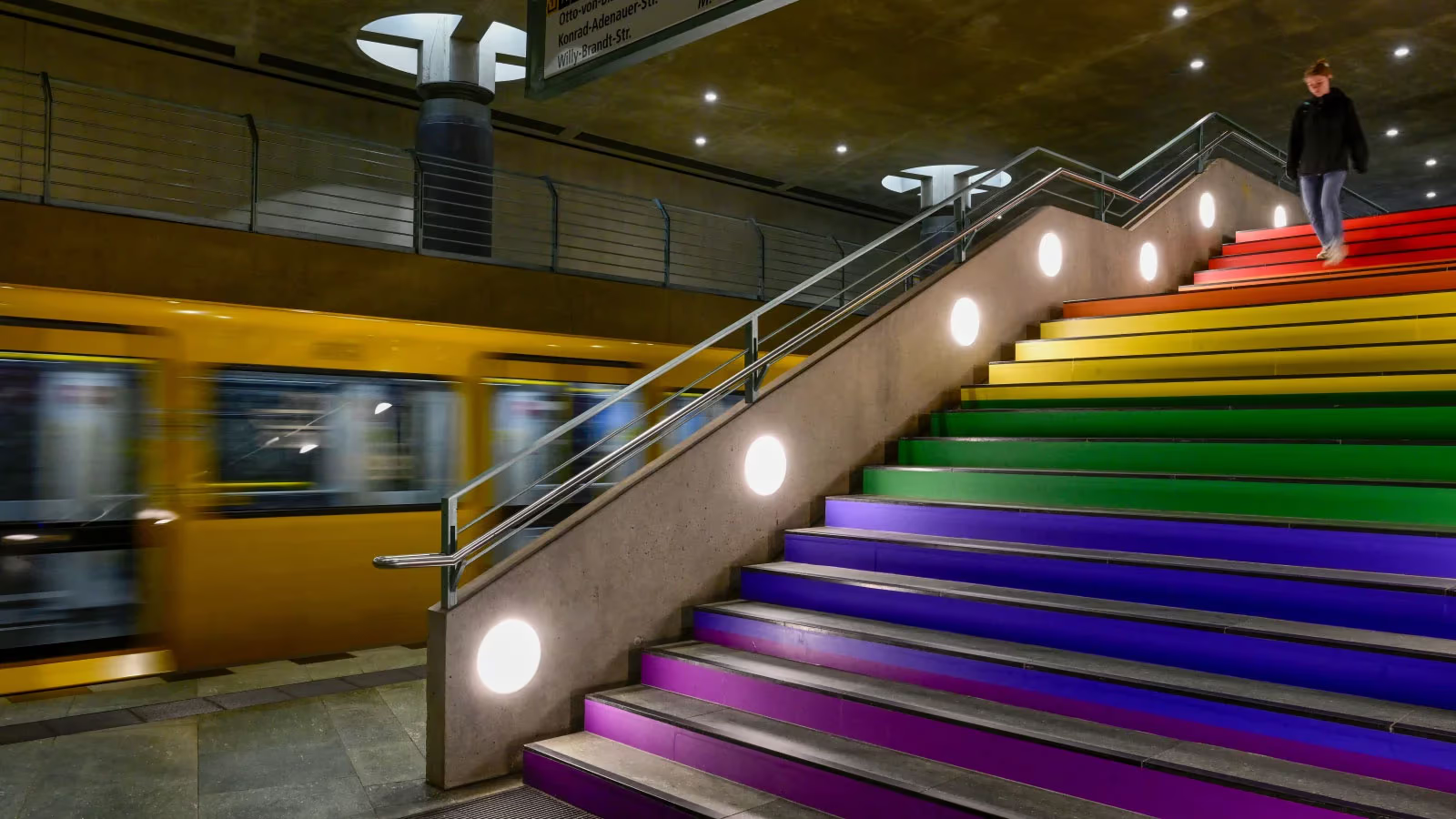The cozy neighborhood near Nollendorfplatz in central Berlin remains as vibrant and open as it was a century ago. It was here that Christopher Isherwood wrote his novels about Weimar Berlin’s gay scene, which later inspired the musical Cabaret.
Every summer, the neighborhood hosts its own intimate Pride celebration, separate from the city’s main parade, which takes place this weekend. It’s part of more than 200 events across Germany—but this year, many participants are asking: is it safe?
Sipping a cocktail at a street party, 62-year-old Georg Schmidt notes with relief that the atmosphere here is calm. Last month, he attended a Pride event in Marzahn, and says the mood there was far more tense.
"We only felt safe thanks to the heavy police presence. Without it, we would not have been protected from the protesters," he says.
The counter-protests are organized by far-right groups, which the Office for the Protection of the Constitution classifies as violent and extremist. According to CeMAS, 17 anti-Pride actions have taken place in Germany since the beginning of the year, and some parades have been canceled due to threats.

Pride participants march along Leipziger Strasse during the parade in Berlin. July 23, 2022.
According to Sabine Volk of the University of Tübingen, such groups attract young men with rhetoric about "traditional values." "Their main claim is that Germany is already ‘colorful enough,’" she says. "And that there is no place for queer life here."
But it’s not only radicals who oppose rainbow symbolism. The new Bundestag president, Julia Klöckner (of Chancellor Friedrich Merz’s party), announced that this year the rainbow flag would not be raised on the parliament building. She also banned staff from attending Pride in an official capacity and recommended removing rainbow stickers from office doors.

Bundestag President Julia Klöckner speaks to the press. Berlin, July 8, 2025.
Chancellor Merz backed the decision, telling ARD: "The Bundestag is not a circus tent." The remark sparked a wave of criticism, including from within his own party.
Green Party MP Nyke Slawik called the ban problematic: "Queer people are not an ideology—they are people!" She noted that they need protection now more than ever: over the past decade, hate crimes based on homophobia and transphobia in Germany have increased nearly tenfold, and most, according to police, go unreported.

Nyke Slawik speaks in the Bundestag during a parliamentary debate on LGBTQ hate crimes.
Even within the CDU, there is confusion, notes Sven Lehmann, head of the party’s LGBTQ+ association: "When I say ‘queer,’ many hesitate: ‘Oh, that’s something leftist.’" He said he had already discussed Merz’s ‘circus’ comment with him.
"We explained to him what ‘queer’ actually means," says Lehmann. "And two days later, during a Bundestag Q&A on hate crimes, he used the term himself."
Rainbow flags fly year-round at Nollendorfplatz, but according to Chris Kelly, the atmosphere is no longer the same. He recently opened a clothing store specializing in industrial rubber and says business is good—but finding a space was incredibly difficult.
"Many landlords turned us down, telling us outright they didn’t want ‘people like us,’" he recalls. "The realtors warned us, but I was still shocked—in the queerest neighborhood in Berlin."
Rights That Still Need Defending

A Fragile Equality
After Decades of Progress, Transgender People Once Again Face Institutional Discrimination

The U.S. No Longer Has a Nationwide Right to Abortion
How Reproductive Rights Came to Depend on States and Partisan Majorities
Kelly’s shop is just a few meters from Romeo and Romeo, a gay bar whose owner was recently assaulted. Kelly says he’s increasingly confronted with hostility and constantly hears about attacks on LGBTQ+ people.
"I’m almost 40 and I’ve seen tremendous progress—like marriage equality," he says. "But something’s shifting. Hatred is becoming normalized again."
He points to a nearby building—home to the legendary Eldorado club until 1933, when it was shut down by the Nazis. After its closure, many of its regulars were sent to concentration camps.

Bundestag metro station in Berlin decorated in rainbow colors—the symbol of the LGBTQ+ community. July 24, 2025.
As the city prepares for the main parade, police report a planned counter-protest under the slogan "against Pride terror and identity confusion."
In response to the decision not to raise the rainbow flag at parliament, the city’s public transport service decorated the Bundestag metro station in rainbow colors. A caption on Instagram read: "Our Bundestag is ready for Pride."
Kelly urges people to join Pride and not to give ground to the new generation of far-right activists. He has no intention of leaving Berlin—unlike Isherwood once did.
